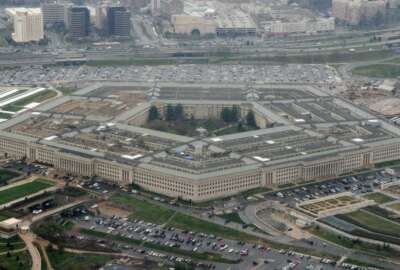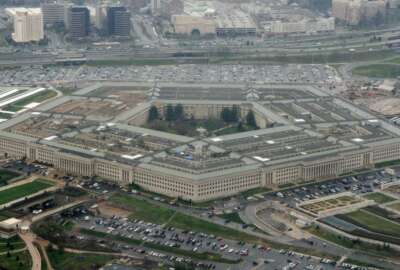Defense funding topline up in the air for 2023 after committees release bills
The House is sticking closely to the Biden budget and to appropriators but the Senate Armed Services Committee is feeling bolder in what it is approving in its...
Congress is tossing around three different topline numbers for funding the Defense Department in 2023 as legislators debate how much money the military should get with inflation hitting rates of 8%.
Two House Appropriations Subcommittees are proposing a $777 billion budget for the Pentagon next year; the budget is the culmination of the Defense appropriations bill and a separate bill that handles military construction. Those bills are the only ones that have true financial repercussions and are largely in line with what the Biden administration requested for Defense back in April.
The House Armed Services Committee is sticking closely to the Biden budget and to appropriators. The 2023 House Defense authorization bill suggests $772 billion for the Pentagon next year.
The Senate Armed Services Committee, however, is feeling bolder in what it is approving in its legislation. That panel is authorizing $817 billion for DoD, an increase of $45 billion from the Biden administration’s request.
Committee staffers said about half of the increase will go to hedging inflation and the other half will go to priorities that were unfunded by the president’s request. The bill halts the proposed decommissioning of 12 Navy ships
The authorization bills, do not appropriate actual funds, but they do dictate policy and are taken into consideration by other lawmakers.
The missing piece of the puzzle is the Senate Appropriations Defense bill, which has not scheduled a release of its legislation yet.
The shifting numbers come from concerns that the Biden administration’s budget only planned for a 2% inflation rate before prices began to rise. Lawmakers fear that the president’s budget will not give the Pentagon the buying power it needs next year to meet its strategy.
House Armed Services Committee Chairman Adam Smith said last week that he expects to see the topline of the House Defense authorization bill higher than what is currently proposed. Smith said the committee is going to try to pass the bill and then offer an amendment that will authorize a bigger budget.
“We’ll see by how much but it’s not going to be an insignificant amount,” Smith said.
The full committee will markup the bill on Wednesday.
Where the funding goes
Despite differing toplines, the three bills share plenty of similarities. All three bills fund the largest Defense research and development budget ever, with at least $130 billion. Those funds will go toward basic research, artificial intelligence, microelectronics and other technologies.
The bills also fund a 4.6% pay increase for service members and for DoD civilians.
The legislation adds extra funds to aid Ukraine in 2023 and adds money to stockpile rare earth minerals that the military needs for critical technologies.
Area of conflict
After years of debate, the Senate’s Defense authorization bill requires women to sign up for the Selective Service System and allows them to be drafted.
Multiple Republicans like Sen. Marco Rubio (R-Fla.) have already come out against the provision.
“Women have served in and alongside the Armed Forces since our nation’s founding. Time and again, they have answered the call of duty and served honorably – often heroically – when our nation needed them,” a handful of senators wrote to Senate Armed Services Committee Chairman Jack Reed (D-R.I.) last week. “But they have done so of their own will. While American men are required to register for the military draft and fight if needed, these requirements have never been applied to American women. Where they have fought, they have done so freely.”
A commission looking at public service found in 2020 that women should be eligible for the draft.
“Ultimately, the commission determined the time is right to require women to register with Selective Service,” the authors wrote. “This policy change represents a necessary — and overdue — step that is in the best interests of the United States. Requiring all Americans to register with the Selective Service System is needed to ensure that during a national emergency, the Government would be able to call on the talents of all Americans and demonstrate the resolve of a united country.”
Copyright © 2025 Federal News Network. All rights reserved. This website is not intended for users located within the European Economic Area.
Scott Maucione is a defense reporter for Federal News Network and reports on human capital, workforce and the Defense Department at-large.
Follow @smaucioneWFED






